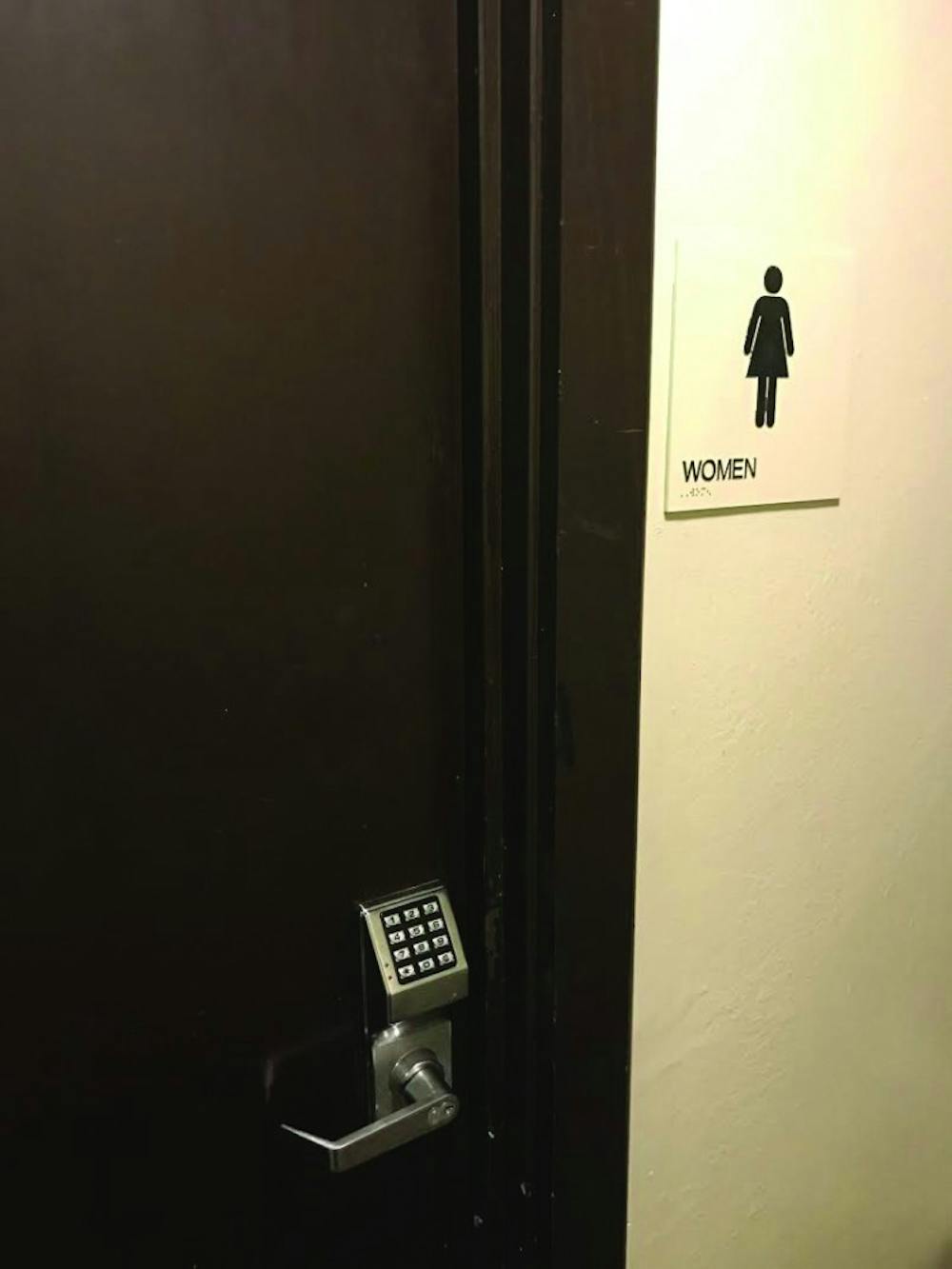On Monday, Dec. 5, the University Student Life Committee, in conjunction with Vice President for Campus Life W. Rochelle Calhoun, announced a pilot program which would deactivate all keypad locks on residential bathrooms for the spring semester.
In a USG-hosted forum on the subject Wednesday, Director of Housing and Real Estate Services Dorian Johnson said that this decision had been officially discussed since 2014, although talks “without the same focus” were being pursued as early as his arrival at the University in 2011.
Johnson added that the problems presented by the current system, in which all bathrooms have keypad locks but only the ones for women’s rooms are activated, are multifaceted. Aside from the inconvenience of needing to type in a bathroom code and the gender inequity such a system creates, visitors to the University, for events like HackPrinceton or Princeton Preview, may be unable to access the bathrooms that they require.
Last year, three University students attempted to solve these problems, particularly in regards to gender inequity, with an app that listed the bathroom codes for any building in the school. The app, called GirlCode, was met with a largely positive response, according to Undergraduate Student Government President Aleksandra Czulak '17, but “some students reached out to P-Safe,” as there were concerns that even those outside of the University could download the app and access codes.
USLC Chair Jenny Zhang '18 also stated that this was an issue that her predecessors had grappled with, and added that many solutions had been proposed during the discussion period before the policy was proposed. One major proposal that ultimately did not receive enough votes to be funded was the placement of Salto locks, like those on exterior doors, on bathrooms in addition to combination locks, which were considered more accessible to guests. Ultimately, however, the committee decided that the most economical and efficient solution would be to simply deactivate all the locks, although, as Czulak remaked, “everything has its pros and its cons.”
USG has solicited student feedback as they prepare to institute the program, disseminating a survey and hosting two forums for students to ask questions. While Johnson says he believes that “most students. . .will recognize the positives” of the program, Czulak recognizes that the survey results have not been unanimously in favor of the policy, and hopes that the University will be able to follow the consensus of many diverse viewpoints.
Johnson also emphasized that this was only a pilot program, and that “if an issue does arise, a lock could be reengaged” at the discretion of University administration. He also noted that there is no perfect solution, and that a peer review of fellow Ivy League associations was “consistent in its inconsistency,” with some schools placing locks on all bathrooms, and others allowing individual floors to decide how bathrooms will be locked. However, he did not express any concerns about the pilot program himself, saying that the locks were installed at a time when any member of the general public could walk into a dorm building, which is no longer the case, thus making the extra layer of security somewhat obsolete.
USG will host an open forum on the pilot bathroom lock program this Wednesday at 4 p.m. in the Frist Campus Center Room 203.








